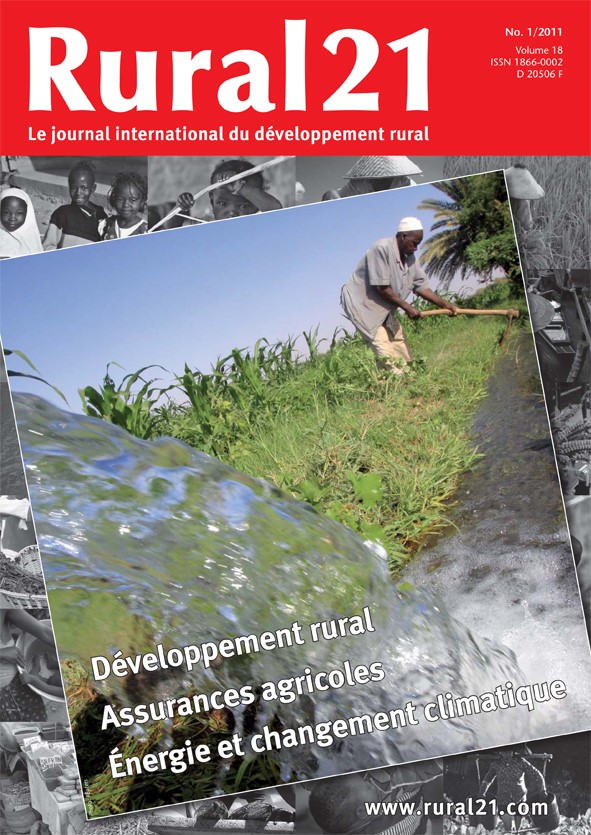DLG-Verlag was founded in 1952 as a subsidiary of DLG e.V. (Deutsche Landwirtschafts-Gesellschaft - German Agricultural Society) with its headquarter in Frankfurt/ Germany. The publishing company provides expertise for the agricultural and food sector.
With its subsidiaries Max-Eyth-Verlag and DLG-Agrofood Medien GmbH the DLG-Verlag offers books and magazines, as well as catalogs of the DLG's international DLG exhibitions.
Members:
Resources
Displaying 171 - 175 of 316Peru: Preserving tropical forests with a focus on sustainable and participatory development
Against the backdrop of increasing deforestation in Natural Protected Areas due to illegal logging and shifting agriculture, the Peruvian association DRIS has implemented a programme in three districts of the country. The goal is to involve the families in forest protection activities while simultaneously providing them with income opportunities
Green genetic engineering in Africa
Although the commercial cultivation of genetically modified (GM) plants in Africa has been relatively modest until now, a number of research and development projects in this field are already operating in several African countries. These involve breeding drought-tolerant, pest-resistant or nutrient-enriched maize, or cassava varieties with greater disease and pest resistance.
L'ILRI redonne espoir aux éleveurs kényans avec l'assurance bétail indexée
Alors qu'ils sont tributaires de l'élevage, de nombreux ménages vivant dans les régions arides et semi-arides du Kenya sont régulièrement confrontés à des pertes de bétail importantes en raison des sécheresses chroniques qui affectent la région.
L'heure d'un approvisionnement énergétique moderne a sonné
L’électricité est un besoin de base et une condition préalable
au développement. Il y a pléthore de solutions techniques et de l’argent en quantité. Alors, pourquoi 1,6 milliard de personnes vivent-elles encore sans électricité ? Voici cinq hypothèses et trois solutions à ce problème.
De l'eau potable grâce à un filtre de type «sachet de thé»
L’université de Stellenbosch, en Afrique du Sud, a annoncé que ses chercheurs avaient mis au point un nouveau système de fi ltrage de l’eau. Elle faisait allusion à un fi ltre jetable de haute technologie qui ressemble à un sachet de thé et rend potable l’eau très polluée. Il s’agit d’un fi ltre à eau facile d’emploi
et respectueux de l’environnement qui s’installe dans le goulot d’une bouteille. Selon l’université, cette invention doit permettre aux communautés vulnérables, par exemple celles qui vivent à proximité de cours d’eau pollués, d’accéder facilement à l’eau potable.




